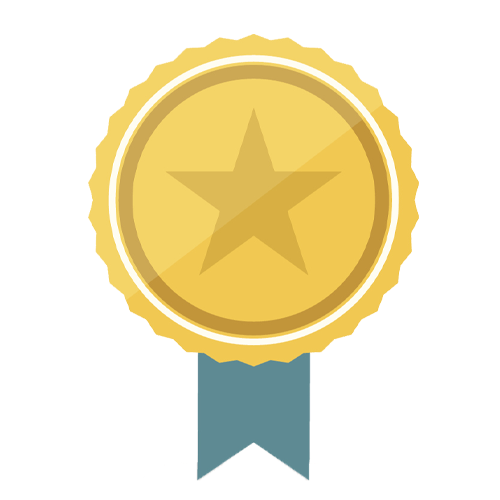As a community, we find ourselves to be under a great deal of pressure these days. As healthcare workers, we are in the forefront of this battle against the COVID-19 pandemic. Life outside of work has also become increasingly stressful, as we often find ourselves worrying about the well-being of our loved ones as well as our own personal safety. Being flooded with news updates on our cell phones, computers, and televisions compounds this pressure and increases our daily stress levels. We’ve all been affected by this viral pandemic in some way and we are being asked to make sacrifices in our daily lives for the greater good of society. During these difficult and uncertain times, it is very important that we take good care of our mental health to ensure that we’ll be able to continue to give the best of ourselves to our patients and families.
Anxiety comes from lack of control of a situation or fear of the unknown. The world is full of this uncertainty right now. However, we can help keep our anxiety levels down by adopting some simple coping strategies, which will help to modify cognitive distortions and help prevent us from adopting a catastrophic thought process. To help mitigate the unknown, one can gather information regarding the current situation and how best to stay prepared and remain calm. It is advised to pick one reliable source of information (i.e CDC.gov or WHO website) rather than perusing various sites or sources. Also, it is best not to stay glued to the news coverage throughout the day, rather, set reasonable limits on the total amount of time spent viewing the news (on television and the internet). Without setting limits for ourselves and the loved ones whose care we are responsible for, we run the risk of creating a negative mindset. On a similar note, limit social media updates regarding Coronavirus and mobile reminders as this can contribute to feelings of anxiety and despair. Start with local updates (regarding local schools, businesses) rather than constant focus on international updates.
Simple steps that you can take to help lower daily anxiety levels:
– Having a contingency plan in place for the future to mitigate catastrophizing and “what-if” thinking. Being proactive and taking charge of the “what-ifs” can reduce the anxiety that is a natural part of dealing with the unknown.
– Acknowledge coping mechanisms that have helped in the past and try to utilize these daily.
– Accept negative feelings and acknowledge them (i.e.: journaling). Inability to express the feelings can build up and lead to long-term anxiety or depression.
– Get regular, daily exercise. A brisk walk or at-home workout can do wonders to relive stress.
– Eat a balanced diet consisting of plenty of fruits, vegetables, and water.
– Reach out to your support system (talking to your medical provider, family, or friends).
– Focus on getting plenty of restful sleep and practice good sleep hygiene techniques.
Other coping mechanisms that can be incorporated into our daily lives:
Breathing techniques: Deep breathing helps you think more clearly and relieves muscle tension. Slowly inhale through your nose. Hold it for a moment and then exhale slowly through your mouth. Repeat this breathing exercise three times whenever you start to feel overwhelmed or stressed. It will help calm and refocus the mind. Body relaxation techniques makes it easier to control your breath if you are pacing, clenching, or fidgeting. Try to stand still, sit down, or even lie down as you focus on your breath.
Meditation and or Yoga: The meditation may be through breathing, mantras, or one may also utilize meditation apps (i.e Headspace, Calm).
Practice mindfulness: Cope by focusing on the current moment. Begin to identify exactly what is going on around you, what emotions you are feeling, what you are thinking, and how your body feels without trying to stop the flow. Grounding exercises: i.e. identify five colors around you, something around you completely new to you, close your eyes and identify what you hear, etc.
Make a change: A change of environment and physical distance can help you cope by relieving some of the stress and tension you feel. This may include a walk, spending the night with a close friend, or taking a weekend vacation.
Exercise: Regular physical activity can help release built-up energy, tension and stress. To combat those feelings, schedule some at-home workouts, which can boost your mood or try running/walking outside.
Be smart about social media:If needed, use social media as a form of enjoyment and for support. Facetime/Skype/group chats can provide a way to connect with friends and family. However, it is important to set reasonable limits on our daily use of social media.
On a very important note, if you find that you, a co-worker, or a loved one are beginning to feel overwhelmed with anxiety and stress and are experiencing thoughts of self-harm, then please contact your medical provider immediately.
Additionally, the American Psychiatric Association has some resources for emergent situations:
Disaster Distress Helpline
Call 1-800-985-5990 or text TalkWithUs to 66746
National Suicide Prevention Lifeline
Call 1-800-273-8255 or Chat with Lifeline
Crisis Textline
Text TALK to 741741
Given the current circumstances, it is imperative that we put forth efforts into maintaining a positive mindset and not giving into fear and uncertainty. We must consider our minds to be an environment that must be kept clean and healthy so that we can continue to perform our important roles as healthcare workers to the best of our abilities. We must avoid littering our minds with negativity and must practice self-awareness in order to ensure that our minds remain focused and healthy. We must also pick one another up and remember that there is always, always, always something to be grateful for. Kindness toward others and a sense of gratitude go a long way in taking care of our own mental health.
In addition, here are is a list of suggested resources for relaxation exercises:
Podcasts:
-Mindfulness Mode
-Pathway to Happiness
-Untangle
-Meditation Minis
-The Daily Meditation Podcast
Relaxation/Meditation Apps:
-Calm
-Headspace
-Aura
-10% Happier
-Smiling Mind
YouTube:
-The Honest Guys – Guided Meditation exercises
-Deepak Chopra – Guided Meditation series
-Progressive Muscle relaxation series
If you would like an appointment for Behavioral Health services at Community Health Centers, please call us at 407-905-8827. The Behavioral Health team is available to assist you and your family during these uncertain times.
About Community Health Centers, Inc.
Community Health Centers, Inc. (CHC), a Federally Qualified Health Center, provides quality and compassionate primary healthcare services to insured, uninsured, underinsured, and underserved children and adults within Central Florida. CHC provides care to more than 66,000 patients, each year, in the Apopka, Bithlo, Clermont, Forest City, Groveland, Lake Ellenor, Leesburg, Meadow Woods, Pine Hills, Tavares and Winter Garden communities. Visit www.chcfl.org for more information. Vintee Narang, MD, is a psychiatrist at Community Health Centers – Forest City.




Comments